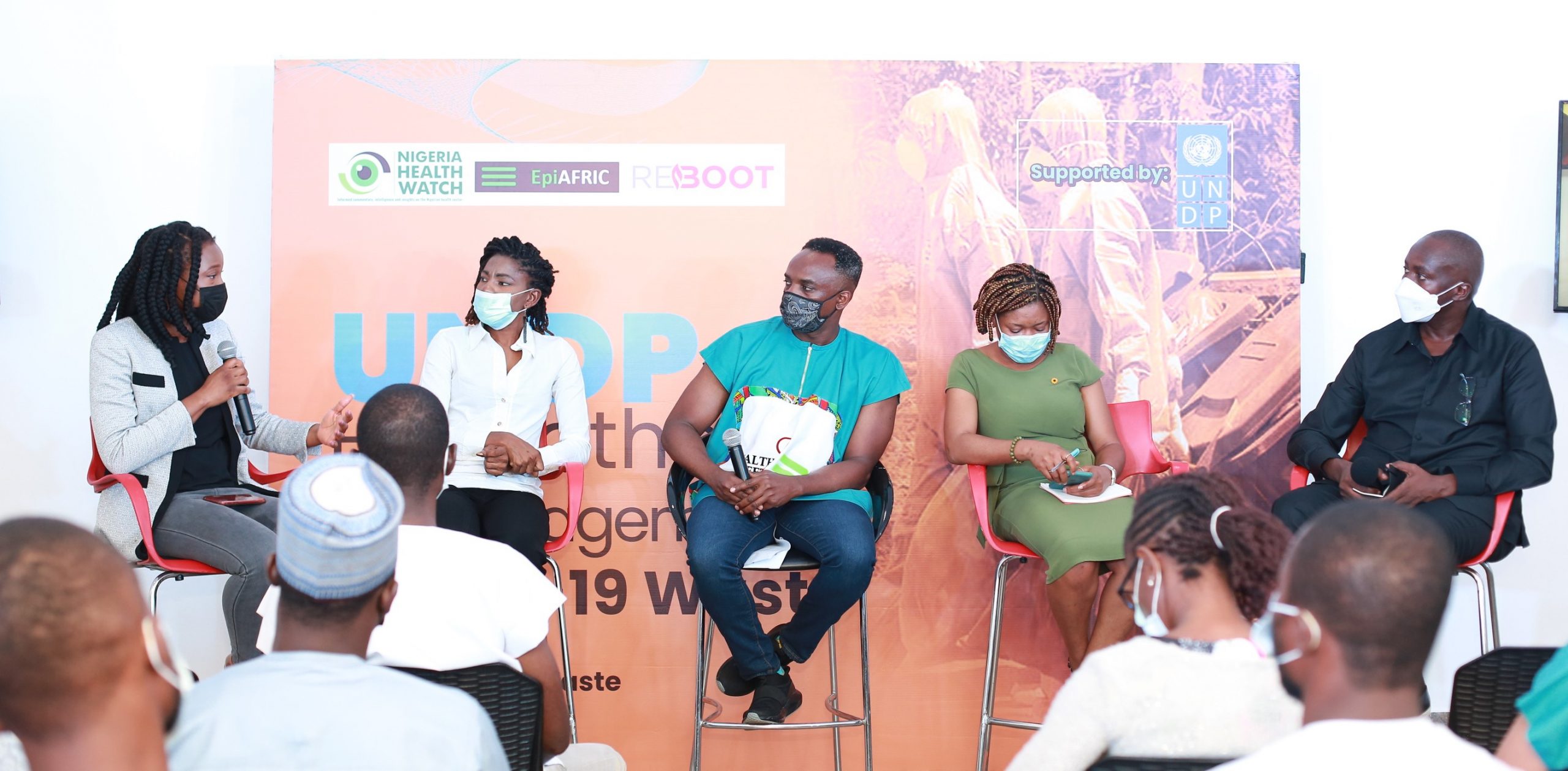By Gabriel Oke and Kenni Ndili (Lead Writers)
As the fight against COVID-19 continues, a new problem has presented itself that if left unchecked may have long-lasting consequences for our world. Preventing and treating COVID-19 has created biomedical waste that must be disposed of safely. In countries like Nigeria, where proper waste management is already a major environmental challenge, the waste produced by the pandemic has the potential to destabilise already weak systems. This is because in addition to the tonnes of waste being generated daily, urban and even rural areas now have to grapple with the waste being generated while responding to the pandemic.
COVID-19 waste can have potentially devastating implications for the environment if not properly managed and it is important that innovative solutions are proffered to develop sustainable waste management systems, especially surrounding COVID-19 biomedical waste disposal.
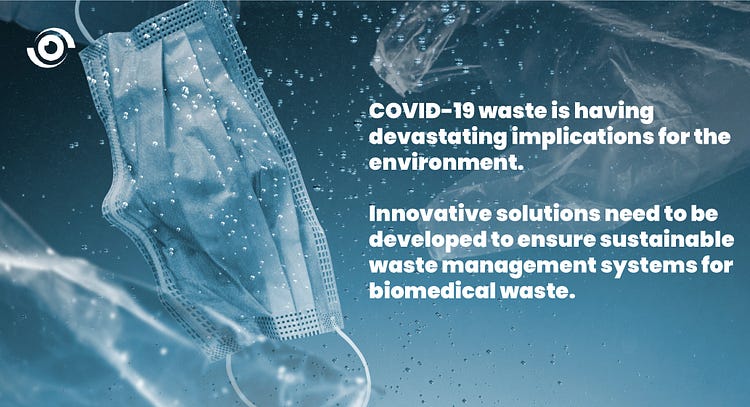
Hacking for COVID-19 Waste
To encourage innovative solutions, a consortium comprising of EpiAFRIC, Nigeria Health Watch and Reboot, supported by the United Nations Development Programme (UNDP) organised a 2-day hybrid hackathon with the aim of designing innovative solutions that could potentially resolve the issue of management and safe disposal of COVID-19 Waste.
Speaking on UNDP’s interest in the hackathon, William Tsuma, UNDP Senior Advisor, Crisis Prevention & Recovery highlighted the fact that the value chain of waste management has implications for the health of Nigerians and there is a dire need for solutions to break the chain. He said, “The value chain on waste management has implications on all. That is why UNDP Nigeria is supporting this hackathon. Hackathons provide a platform to find localised solutions to address problems that people face”.
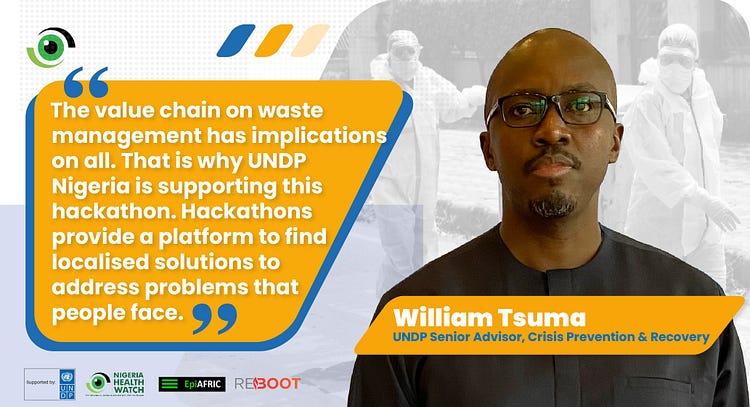
Through individual entries and engagement through tech hubs, the hackathon received 278 entries. After multiple elimination rounds, ten finalist teams were chosen to together virtually #Hack4COVIDWaste. Discussions around design thinking and human centred design, guided participants on how to design and make the best pitch possible before being allowed to hack for their own solutions and present these ideas through pitch videos to a selected panel of judges.
The selected hackers went into their respective teams which were made up of developers, designers, multiple health practitioners, to begin hacking for financially viable prototypes of solutions that could be implemented to improve the existing poor COVID-19 wastes management systems in health facilities.
During the opening of the 2-day hackathon, Mr Chukwura Okagbue, who represented the National Environmental Standards and Regulations Enforcement Agency (NESREA) discussed the work of the agency with regards to managing COVID-19 waste and other medical waste. “In 2019, NESREA observed that a lot of waste coming out of hospitals was not properly managed. We were mandated to come up with regulations to properly and effectively manage these waste. Since the emergence of COVID-19 in Nigeria, we have been sensitising people and facilities that are managing COVID-19 on the importance of managing this waste properly,” he said.
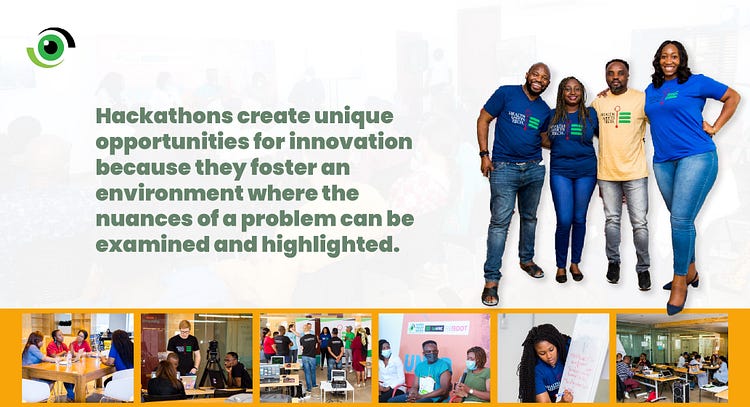
To assess the viability of the submitted hacks, judges evaluated the pitches and delivered scores based on selected criteria, focusing on the technical and creative aspects of the solution. Each solution was judged on the technical innovation that it brought as well as the creativity of the solution itself. To tackle the sustainability of the solution, points were also given for the viability of the business model and the impact it could have on reducing the effects of COVID-19 waste on the environment.
The winner of the hackathon was RecyclePoints, a social enterprise based in Lagos that engages with communities and corporate organisations, collecting consumer waste for recycling. In line with their corporate mission, their solution suggested using paper-based corrugated boxes for the collection of recyclable medical wastes which could be processed into plastic to produce school chairs and other medical consumables like new surgical gloves and face masks. The solution also suggested adopting the use of a mobile app to monitor the storage levels of the waste bins and tracking of recyclable materials.
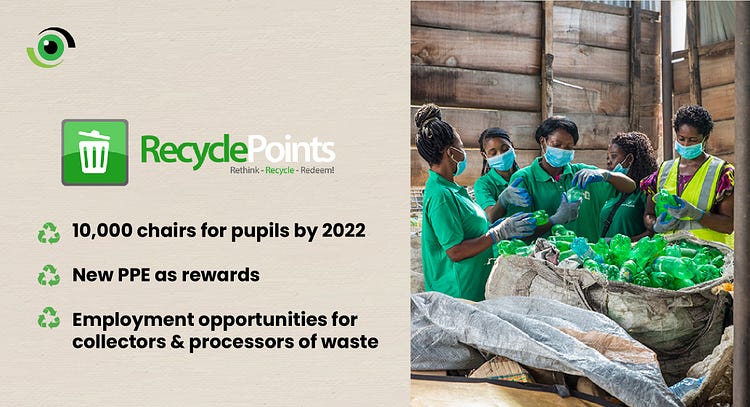
RecyclePoints scored high in both the technical and creativity aspects, presenting a solution that integrates both previously available technology with new mobile technology to manage the recycling process. The team also scored high in the business category, as the solution presented a business model that is relatively easy to market and could provide long term sustainability.
One Step of Many
Hackathons create unique opportunities for innovation because they foster an environment where the nuances of a problem can be examined and highlighted. This creates ample opportunity for other solutions to be developed, or for ideas presented to create a snowball effect that could create long lasting solutions to problems. Events like this create avenues for diverse people with innovative ideas to put forward potential solutions to some of the problems that we are facing.
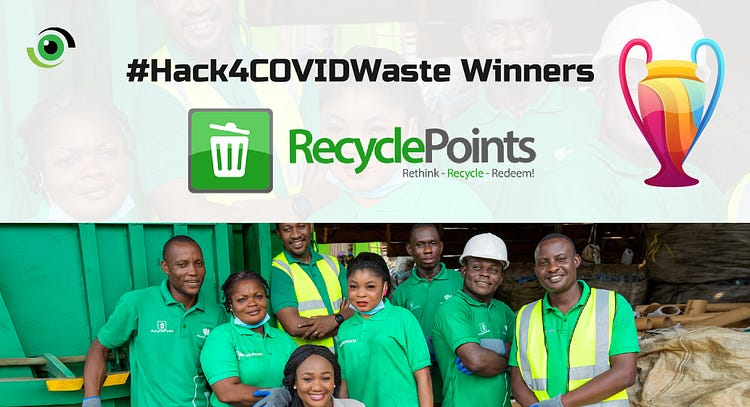
The collection and recycling methods highlighted in RecyclePoints’ solution demonstrates the complexities of the COVID-19 waste management challenge, that needs to be considered. When examining COVID-19 waste sources, there is not only a problem regarding the waste being produced by hospitals, but also the waste being produced by individuals. With the prevalence of single use masks, the disposal of these mask waste has now become a widespread problem globally, with no easy solution. Events like the #Hack4COVIDWaste should become more common. They offer young people the opportunity to come together to propose ways to tackle some of the current issues we have been confronted with, enabling them to put forward unconventional solutions that may not have been previously considered.
As a starting point, the winning pitch by RecyclePoints offers an opportunity to potentially further develop solutions for COVID-19 waste management.


